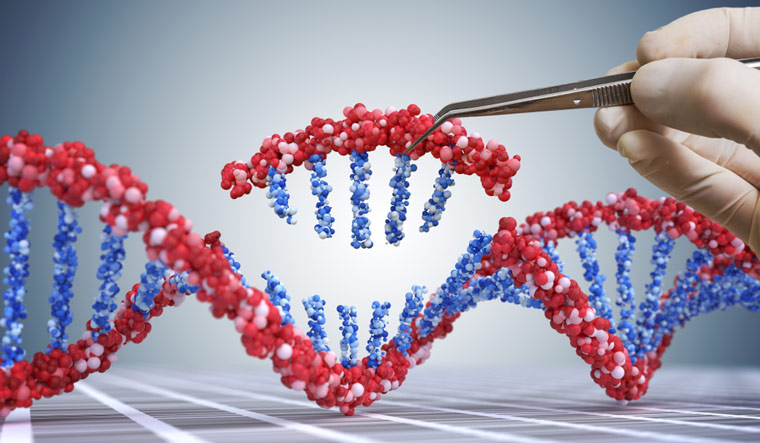The first people to be gene-edited, a pair of baby twin girls in China, may have been mutated in a way that they are likely to die young, researchers said, calling the action "very dangerous" and "foolish".
Last year, Chinese researcher Prof He Jiankui shocked the world when he genetically altered the twins to try to give them protection against the deadly human immunodeficiency virus (HIV).
He was subsequently suspended from any scientific activities amid mounting criticism at home abroad about the experiment.
"It's shocking and unacceptable," Xu Nanping, vice-minister of science and technology said in November last, adding that his act is a blatant violation of China's laws and regulations and violated the bottom line of academic morality and ethics.
A new study in 'Nature Medicine' on the twin gene edited girls shows people who naturally have the mutation he was trying to recreate were significantly more likely to die young, the BBC reported.
Experts said, Prof He's actions were "very dangerous" and "foolish".
What he tried was target a gene called CCR5.
It is a set of genetic instructions that are important for how the immune system functions. However, they are also the doorway that the HIV walks through to infect cells.
Mutations to CCR5 essentially lock the door and give people resistance to the HIV, the report said.
So, Prof He made embryos in an IVF clinic and then used gene-editing technologies on them to alter the CCR5 gene.
The resulting girls - known as Lulu and Nana - were born last year.
The problem is CCR5 has a bigger role in the body than just making people vulnerable to the HIV. It is active in the brain and in fighting off other infections, particularly flu.
The study, at the University of California, Berkeley, looked at nearly 410,000 people in the UK.
It showed those who had only the mutated version of CCR5 were 20 per cent more likely to die before they turned 78.
"In this case, it is probably not a mutation that most people would want to have," Prof Rasmus Nielsen, from UC Berkeley the report quoted the BBC as saying.
"You are actually, on average, worse off having it."
Fellow researcher Dr Xinzhu Wei said the gene-editing technology, known as Crispr, was still too risky to be using on children.
"The Crispr technology is far too dangerous to use right now for germ-line editing," she said.
The implications for Lulu and Nana are still unclear.
"It is impossible to predict if the mutations carried by the twin girls will have any effect," said Prof Robin Lovell-Badge, from the Francis Crick Institute.
Not everyone who carried the mutations in the study died young but it was more likely.
And life expectancy depends on a complex mix of the DNA you are born with and the world you live in.
To further complicate things, Prof He mutated CCR5 in a similar rather than identical way to people who have HIV resistance.
Prof Lovell-Badge said the study "shows once more that He was foolish to choose CCR5 to mutate".
There was universal condemnation by scientists when Prof He made the announcement in November. Some described the experiment as "monstrous".
There was also anger because HIV can be treated and there was barely any risk of it being passed from the HIV-positive father to his children.
The Chinese authorities investigated and concluded that Prof He had acted illegally in pursuit of "fame and fortune".
Prof He has always defended his experiments and at a conference in Hong Kong said he was "proud" of his gene-editing work.



